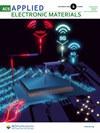基于对抗神经网络的 DoS 攻击检测方法
IF 4.3
3区 材料科学
Q1 ENGINEERING, ELECTRICAL & ELECTRONIC
引用次数: 0
摘要
为了分析深度学习模型对检测拒绝服务(DoS)攻击的影响,本文首先研究了DoS攻击的概念和攻击策略,然后探讨了目前检测DoS攻击的方法。针对研究的局限性,本文建立了基于深度学习的分布式 DoS 攻击检测系统。该系统能快速准确地识别网络中需要检测的分布式DoS攻击流量,并及时向系统发出报警信号。然后,针对 DoS 攻击中网络流量不完整的特点,提出了一种名为 "带逆变器的改进条件瓦瑟斯坦生成对抗网络"(ICWGANInverter)的模型。该模型可自动学习原始数据的高级抽象信息,然后利用重构误差法确定最佳分类标签。然后在入侵检测数据集 NSL-KDD 上进行测试。结果表明,随着噪声系数的增加,KDDTest+ 和 KDDTest-21 子数据集中连续特征重构的均方误差也在稳步增加。所有接受者操作特征曲线(ROC)均位于对角线的顶端,且宏观平均值和微观平均值的 ROC 曲线下面积(AUC)值均在 0.8 以上,这表明 ICWGANInverter 模型在单类攻击检测和整体攻击检测中均具有出色的检测性能。与其他模型相比,该模型的检测准确率更高,达到 87.79%。这表明本文提出的方法在检测 DoS 攻击方面具有更高的优势。本文章由计算机程序翻译,如有差异,请以英文原文为准。
A DoS attack detection method based on adversarial neural network
In order to analyze the influence of deep learning model on detecting denial-of-service (DoS) attacks, this article first examines the concepts and attack strategies of DoS assaults before looking into the present detection methodologies for DoS attacks. A distributed DoS attack detection system based on deep learning is established in response to the investigation’s limitations. This system can quickly and accurately identify the traffic of distributed DoS attacks in the network that needs to be detected and then promptly send an alarm signal to the system. Then, a model called the Improved Conditional Wasserstein Generative Adversarial Network with Inverter (ICWGANInverter) is proposed in response to the characteristics of incomplete network traffic in DoS attacks. This model automatically learns the advanced abstract information of the original data and then employs the method of reconstruction error to identify the best classification label. It is then tested on the intrusion detection dataset NSL-KDD. The findings demonstrate that the mean square error of continuous feature reconstruction in the sub-datasets KDDTest+ and KDDTest-21 steadily increases as the noise factor increases. All of the receiver operating characteristic (ROC) curves are shown at the top of the diagonal, and the overall area under the ROC curve (AUC) values of the macro-average and micro-average are above 0.8, which demonstrates that the ICWGANInverter model has excellent detection performance in both single category attack detection and overall attack detection. This model has a greater detection accuracy than other models, reaching 87.79%. This demonstrates that the approach suggested in this article offers higher benefits for detecting DoS attacks.
求助全文
通过发布文献求助,成功后即可免费获取论文全文。
去求助

 求助内容:
求助内容: 应助结果提醒方式:
应助结果提醒方式:


